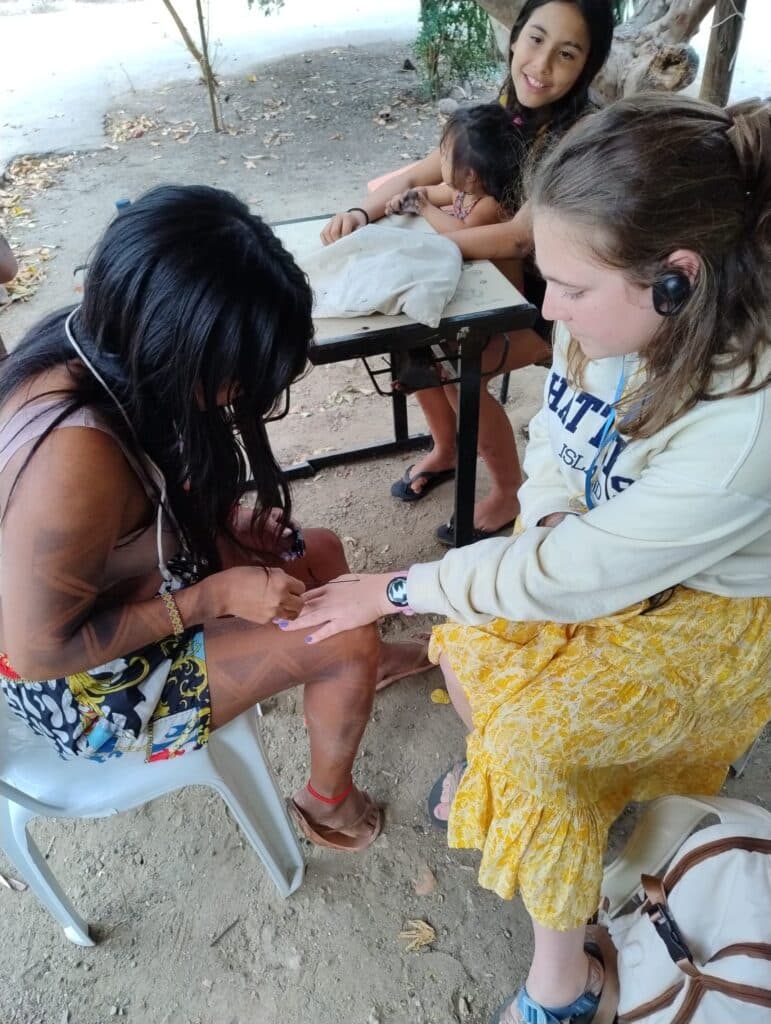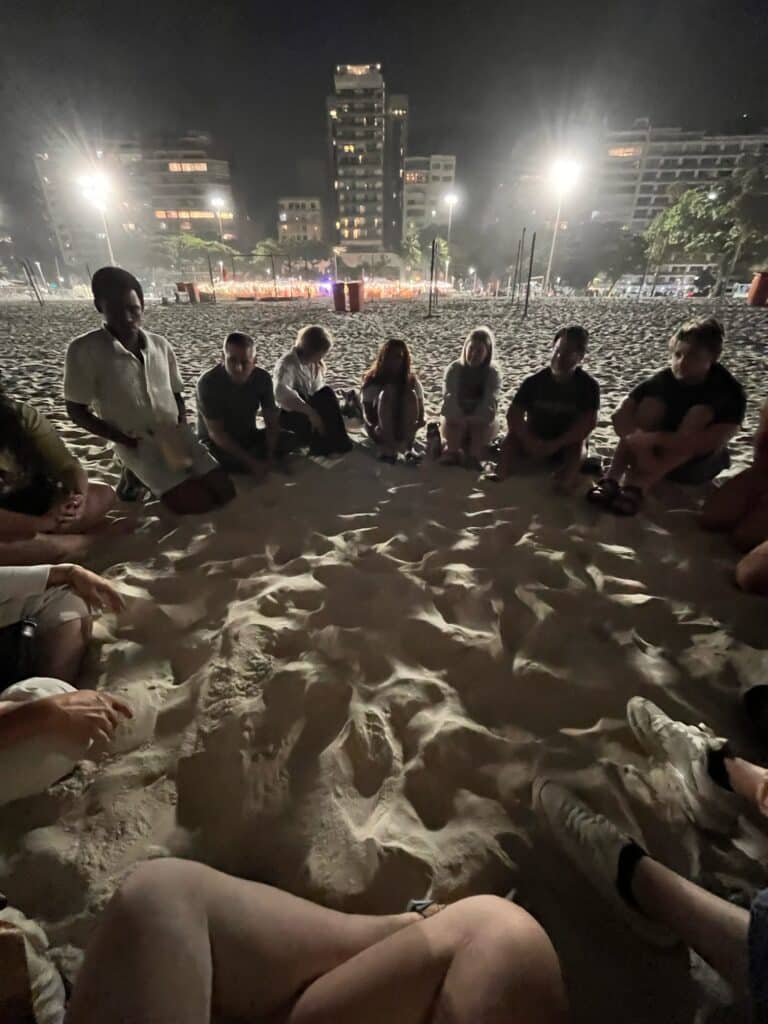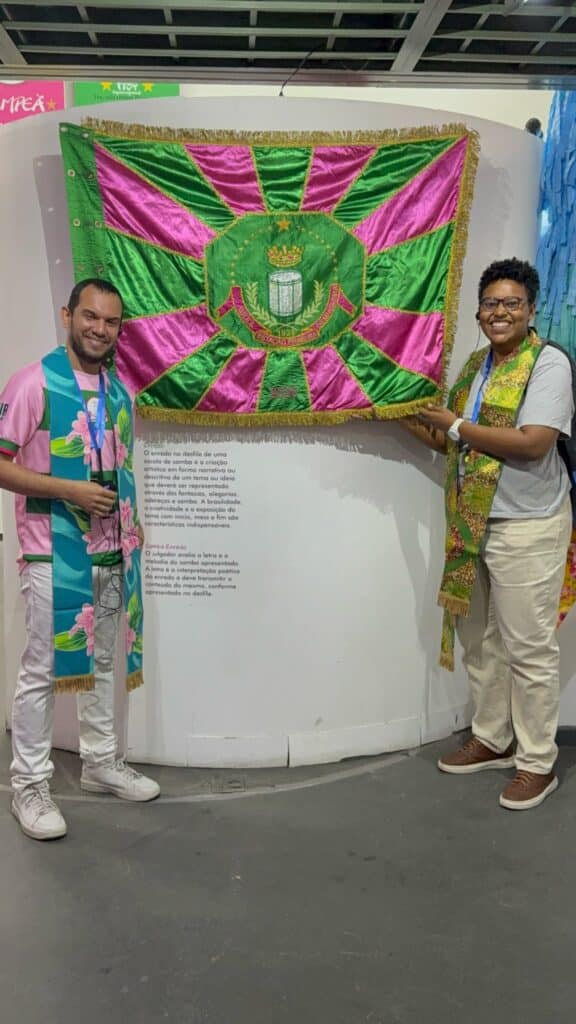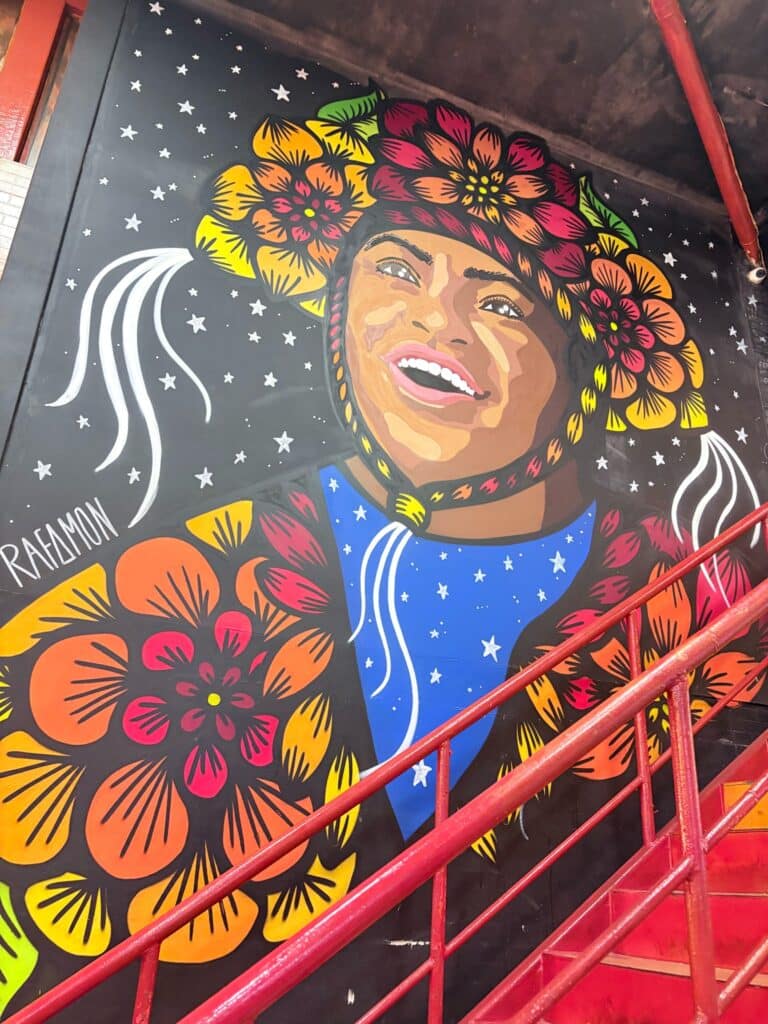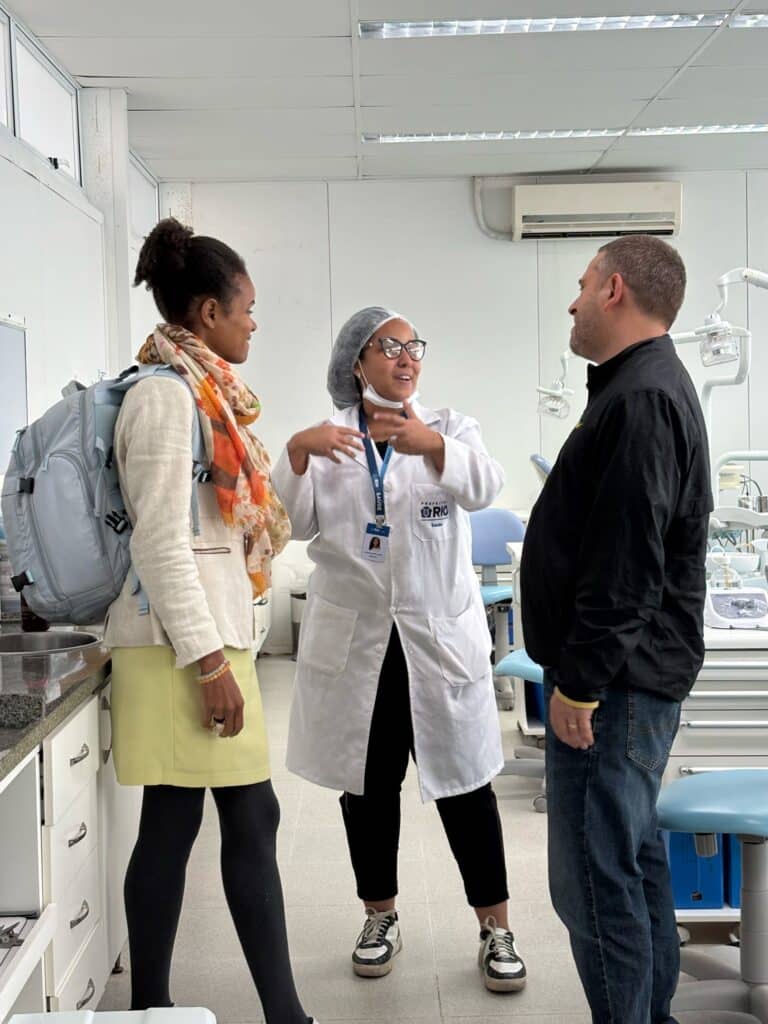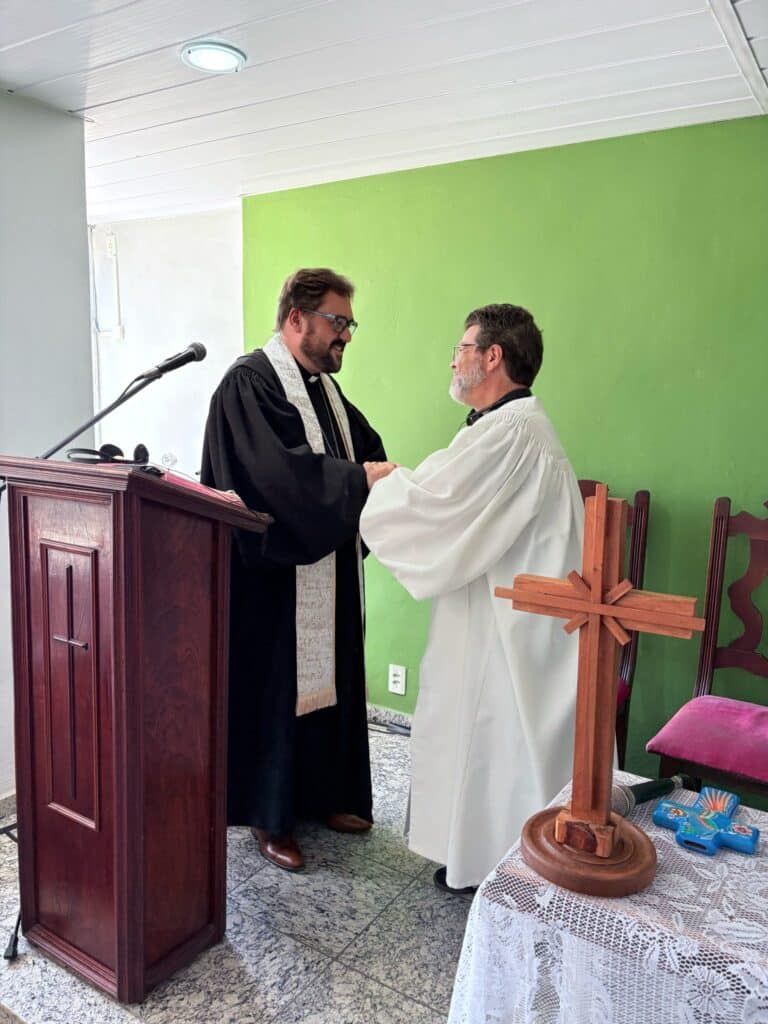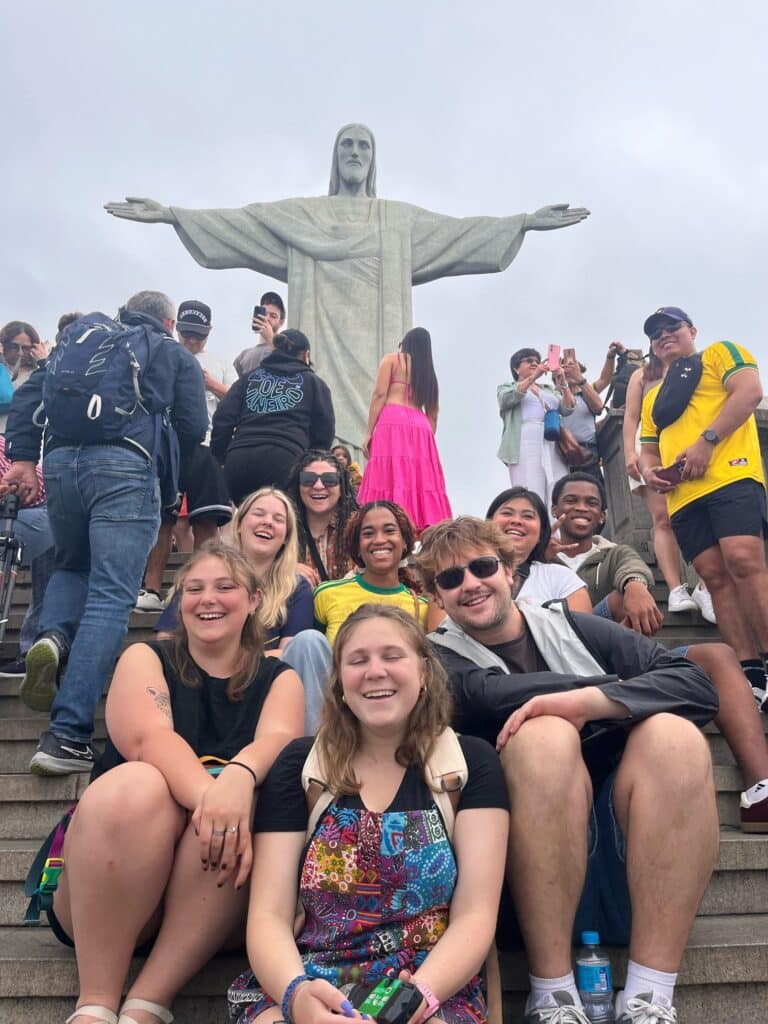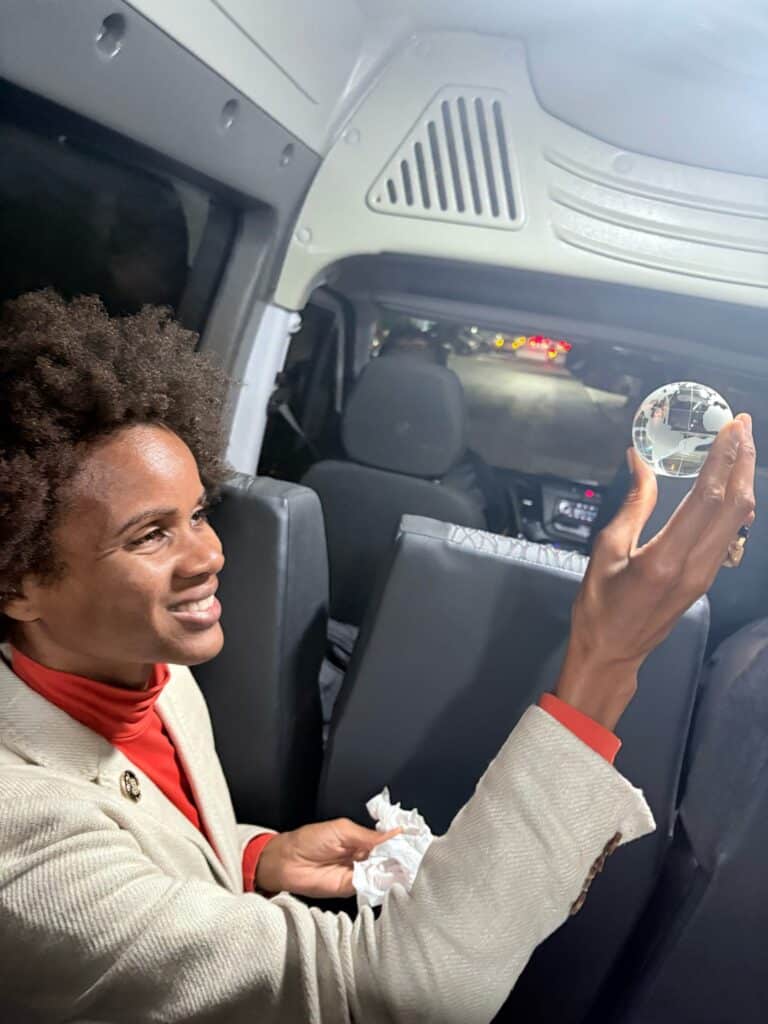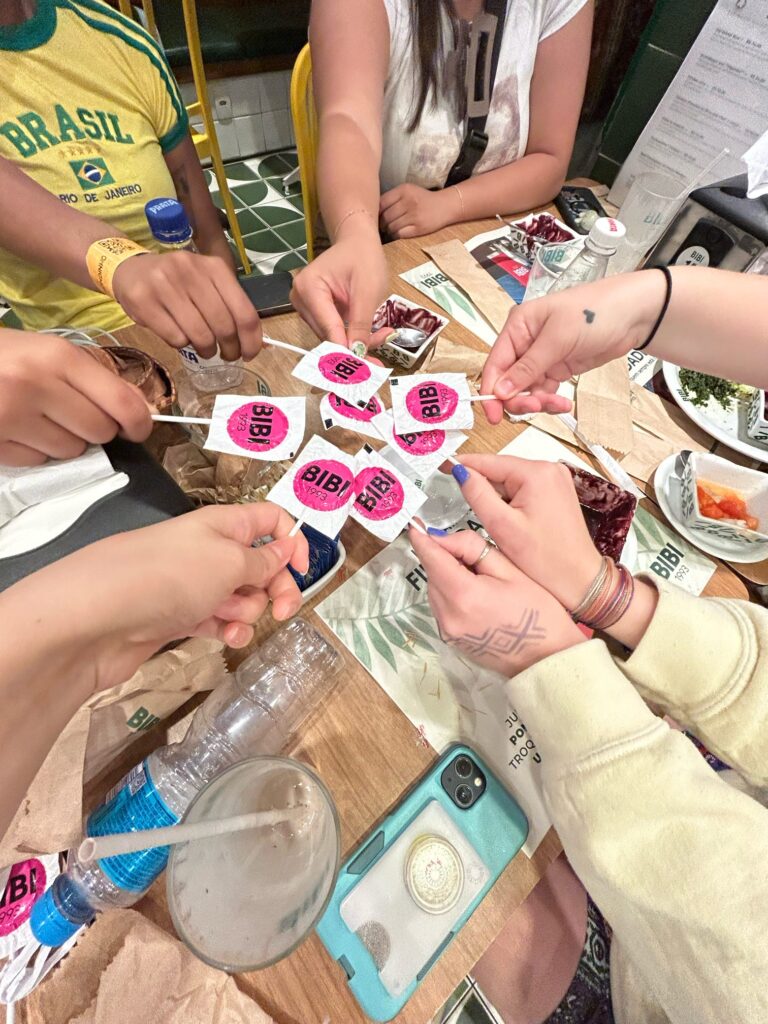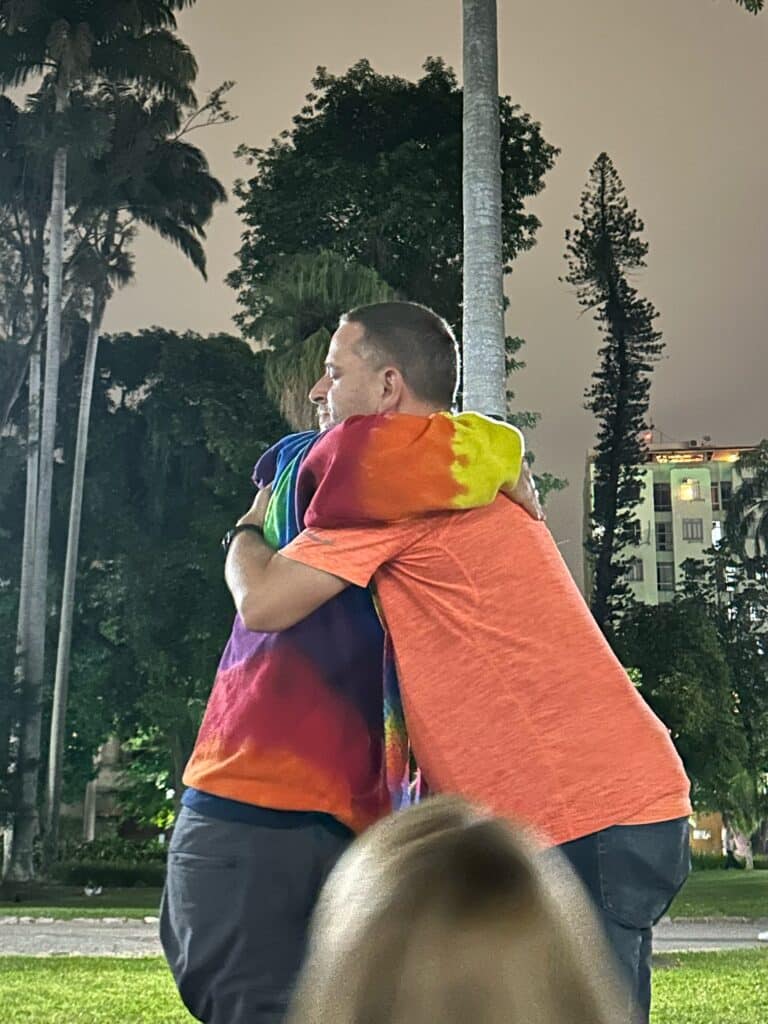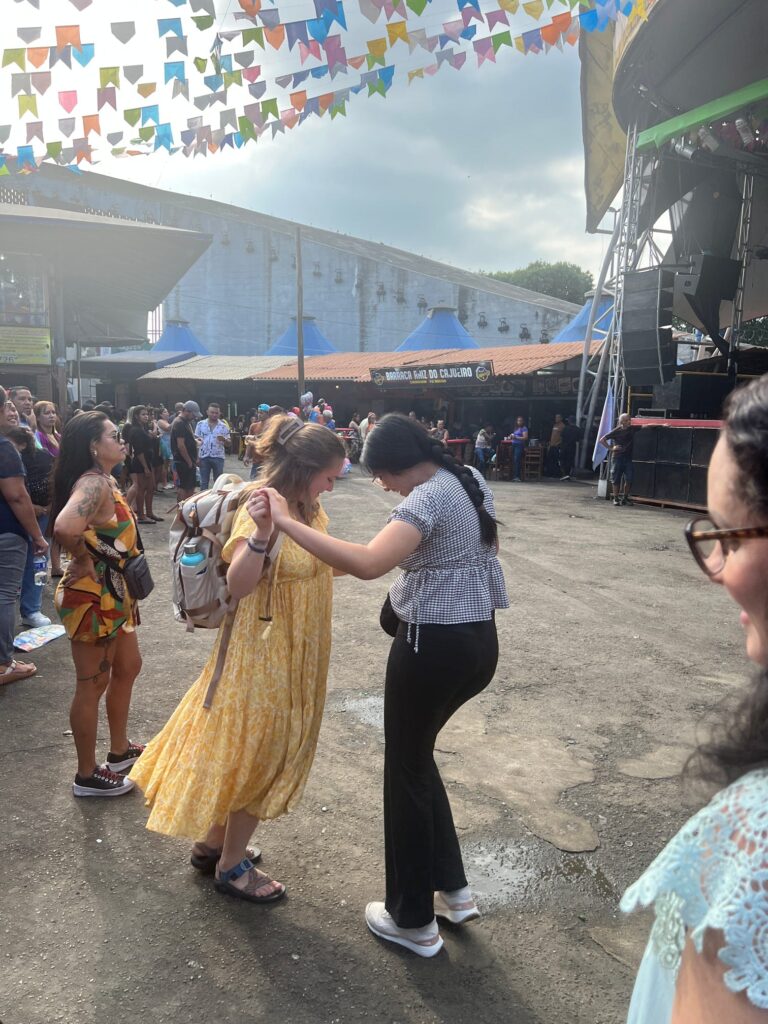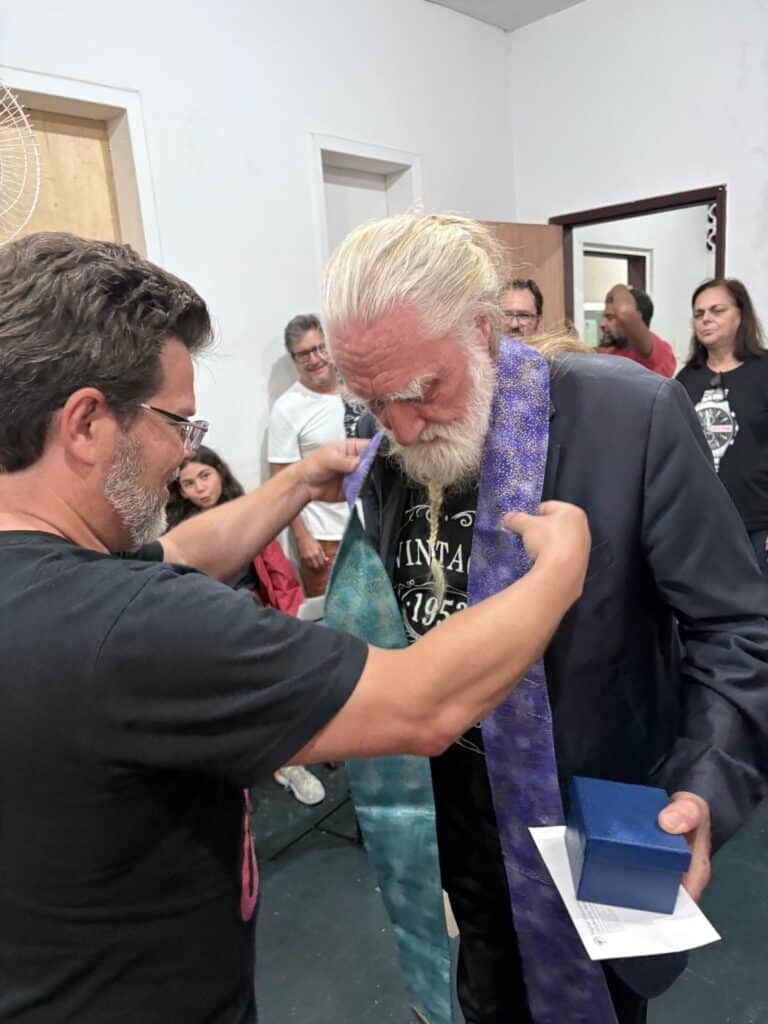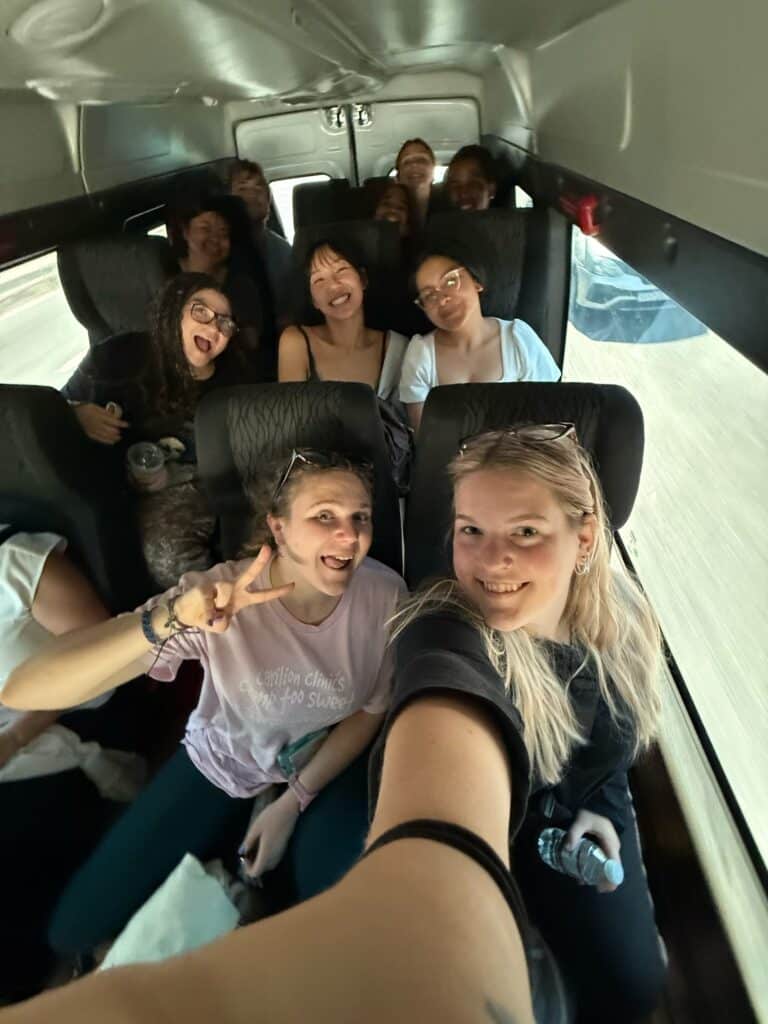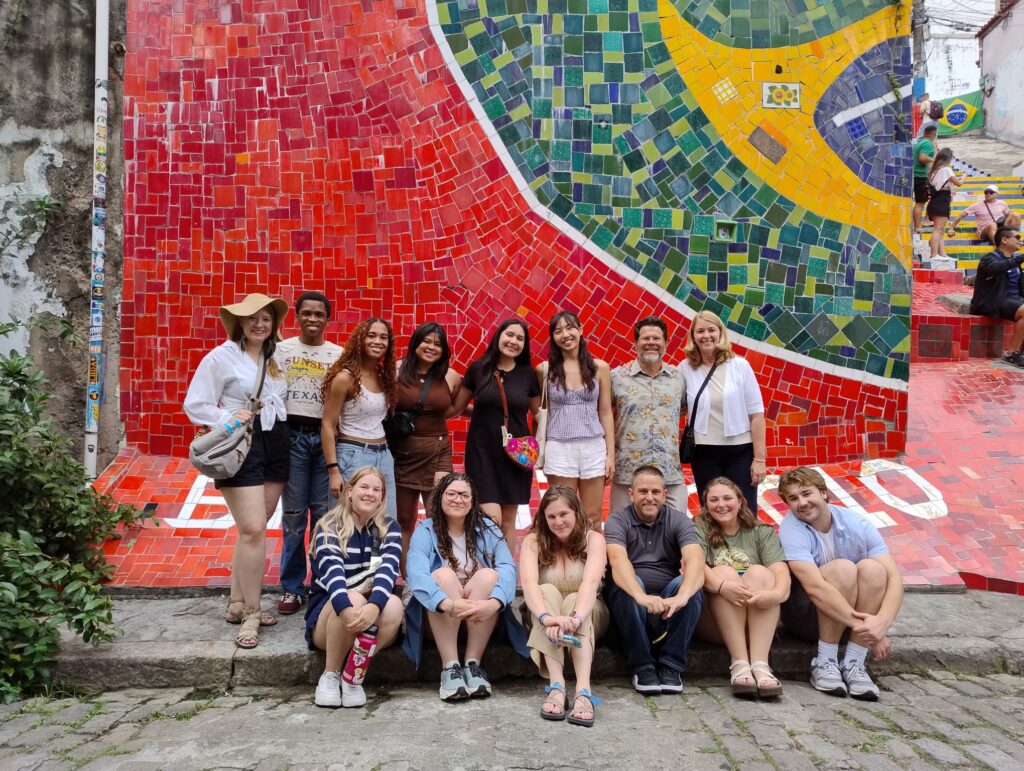HELM Global Immersion: Reflections on Brazil
In May, Higher Education Leadership Ministries and Global Ministries organized a pilgrimage for the HELM Leadership Fellows. In the third year of the program, students travel abroad to visit with an international partner and learn more about the work of our partners and deepen their understanding of the Global Church. Read some of their reflections below.
I strained to listen to the English flowing through the translation device tucked in my ear. The words didn’t match the Portuguese coming out of the mouth of the man in front of us. Our group was clustered together, smelling, tasting, and delighting in the plants offered to us. The lime, citronella, and mint leaves passed around were nothing less than sacred, holding space for the healing and resistance that had come into contact with violence and grief.
Sunlight beamed through the open center of a health clinic. Plants grew with abandon, the air felt clean, and healing felt abundant. A plant spiraled toward the sky, the dark green stark against the almost neon pink on the tips of the leaves. Bathing in the sunbeams, bearing witness to the line of folks waiting to receive vaccines.
Hummingbirds were stitched alongside the tree of life, gifted from the hands of someone who had traveled miles to bring the connection point of these birds and this tree. Hummingbirds, so mighty, resilient pollinators, skilled air dancers, spiritually gift the grounded rootedness of the tree of life.
The frigate, its forked tail trailing behind it, circled easily above the ocean, matching the wind’s fluidity. High above the world, at eye level with Sugarloaf Mountain, our group must have looked tiny tucked into a rooftop restaurant. These birds, equipped with a sense of place even so high above us, were not disconnected from the world below. The natural world appeared to seek us out in Brazil, showing up in quiet but powerful ways. Reminders of the spiritual and the complexity of what we encountered. It was a choice made at every turn to share food, laughter, tears, stillness, chaos, and stories. The choice to lean in went beyond the explicable, escaping what any language could capture. Leaning in, close enough to ingest a tongue-numbing herb, did not come without the equal relationship with the wider context, much like the scope of a swooping magnificent frigatebird.
– Olivia Hardin-Nieri (Brazilian flora and fauna)
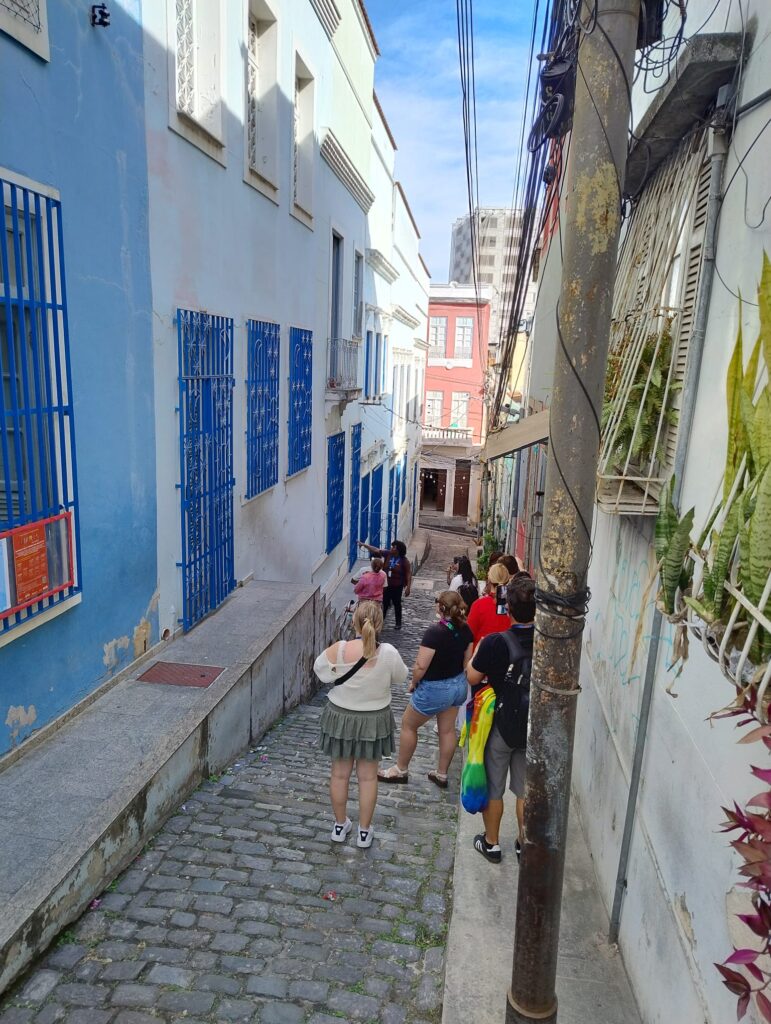
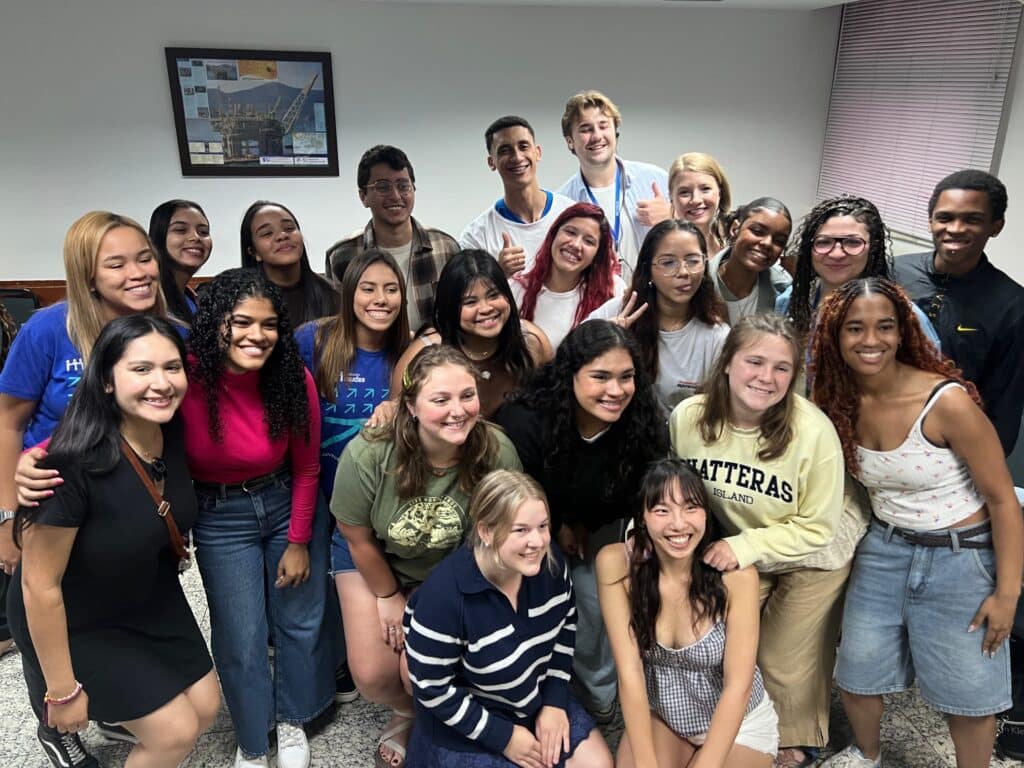
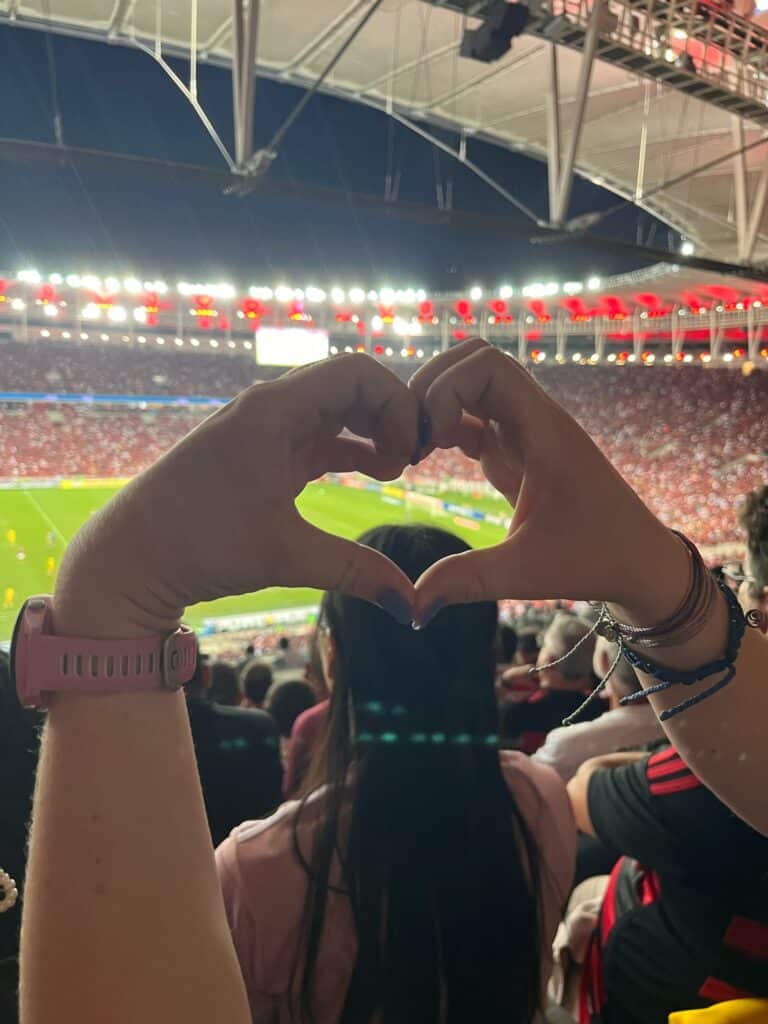
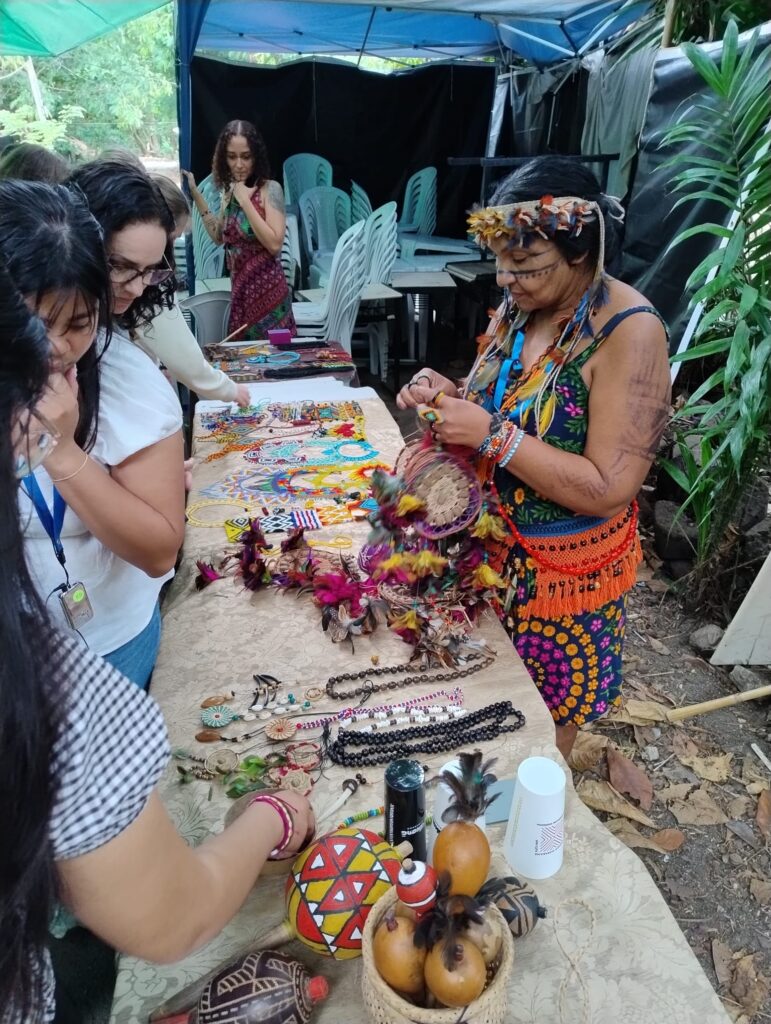
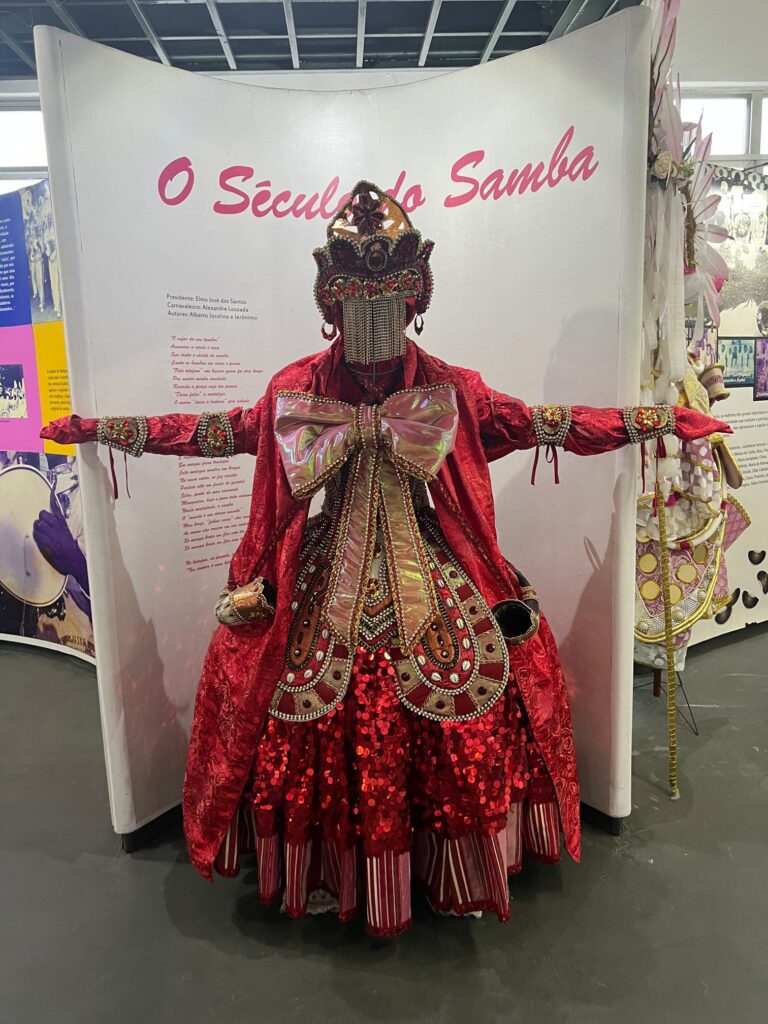
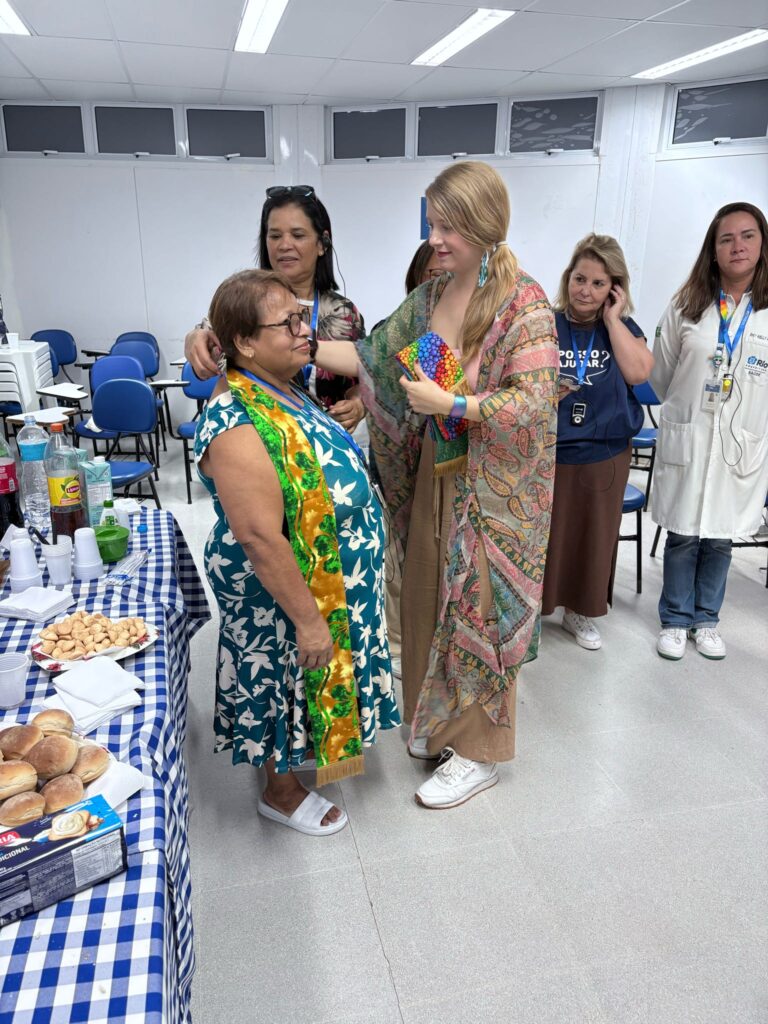
Looking back on the time leading up to our trip to Brazil, I really did not know what to expect. I knew our trip had an anti-colonialism focus, but I struggled to envision what that would look like when the problems surrounding colonialism seem so daunting. I was very impressed with the work that Michael, Fiyori, and the rest of Global Ministries did to connect us with such fantastic individuals throughout our trip. To say I felt empowered by the connections we made on this trip would be an understatement. Our group arrived in Rio and our first stop was to Fundacao Mudes, where Pastor Luis immediately welcomed us and eased our nerves with his lighthearted personality. The foundation poured into us the first day, bringing in journalist, Magalee, to give us a fascinating rundown of the political history of Brazil. The foundation also gave us a chance to meet their interns. This was our best opportunity to connect with individuals who were around the age of all of us scholars, I did get beat in arm wrestling but become friends with an admirable group of young adults. The foundation set a high bar for everyone else on the trip, but I was continually impressed with everyone we met.
Val, our guide on our tour of Little Africa, absolutely made the experience what it was. If our group were to have taken the tour without the information Val provided us, it would not have been nearly as impactful as it was. There were a lot of difficult emotions walking through the streets where the slave trade took place, but they were feelings needed to be felt and facts that needed to be acknowledged for restorative work to be done. The resistance that Val and their coworkers are providing through uncovering stories of the past is beautiful, and their museum is a place I need to return to in the future so I can see their progress.
The same passion displayed by Val was displayed by Manu, who gave us a presentation on traditional African religions. Manu’s intellect is what stood out to me first, but after we were lucky enough to spend the whole day with her, we found that what makes Manu so special is her kindness. Claudia and her came into the museum even though they were on strike, just to share with us. The museum was so special to me, and then the samba school was an experience that was special as well. I loved seeing the samba school as a beacon of hope in a favela, and a world that is in desperate need of it.
The ladies from the health organization we met with also gave me great hope. They all referred to themselves as “Barbara’s disciples” exhibiting so much respect for their leader Barbara Mosley De Souza. This stood out to me because I saw these women as heroes, yet they were so humble and saw themselves as just small parts of something bigger than themselves. The resilience they show to come into work every day in the face of a lack of funding and danger in the surrounding area was very inspiring.
Throughout the week we were also supported by Pastor Rodrigo and his church. Pastor Rodrigo had a smile that was infectious and led a worship service that blew me away. Pastor Rodrigo’s church held a space for a program for children to learn music as an escape from danger in the streets. The program was led by a man named David from Europe, and he was a fantastic human being who made a choice to use his gifts to help others find meaning in their lives. Members of Pastor Rodrigo’s congregation also stuck around with us when we visited the indigenous community on Sunday. This tribe resides right by the Maracana stadium in the middle of Rio, and hearing their story opened my eyes to even more ways native people have been and continue to be marginalized. The entire community showed us such compassion, the leader
shared with us his knowledge of plants, and a student they have been hosting shared conversation with us in English, which he said he had learned from watching Disney channel. The connections we made throughout this trip were only possible because of our great interpreters, Rainn and Natalia. They showed an interest in what we were learning and were very intentional about properly presenting not only what was said, but how it was said, and provided context when needed. They showed such an interest that I did not realize they were from an external company; I thought they worked directly for Global Ministries. They made a connection possible between me and my Portuguese-speaking friends, and for that, I am forever grateful.
Words cannot do this trip justice, but I hoped to hit on just a little bit of what made this trip so special to me. I see ways in which uncovering stories from the past and the present can help in fighting the consequences of colonialism. I also see that this work has to be done from a place of compassion and humility. The leaders we met on this trip showed how having the proper approach to the small things in life carries over to the big things and makes them easier to deal with. I am forever grateful to HELM for giving me this experience and for having it be with my cohort. My cohort has served to be the Disciples community that I have yearned for my whole life. Being surrounded by such caring and intelligent people relieved so much of the anxiety I had felt going into it. I am still processing so much of this trip and have so much to say, but this is just a glimpse into how it exceeded any expectation I could have had for it.
– Sam Snider
